"We have some work ahead of us, but that's normal"
The concept of living in warmer times is not only a hot global topic for scientists working in the here and now, but also for those who deal with the past. Leading paleoscientists convened at the University of Bern from 5-7 April to share knowledge and start a contribution to an Intergovernmental Panel on Climate Change (IPCC) special report.
The workshop at the University of Bern was the first meeting of Past Global Changes’ (PAGES) new «Warmer Worlds Integrative Activity» designed to coordinate efforts of various PAGES working groups and to start preparations for a paleoscience contribution to the 2018 IPCC Special Report on the impacts of global warming of 1.5°C above pre-industrial levels.
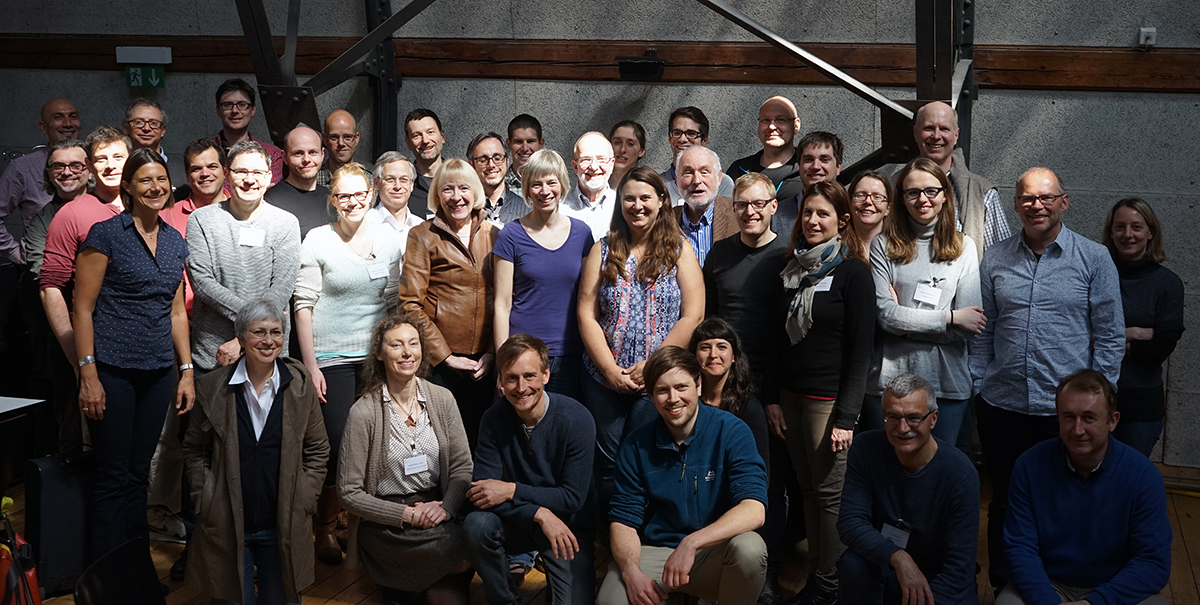
Studying the past to predict the future
Paleoscience deals with the past. The workshop covered the Pliocene (up to 5 million years ago) to the recent past (the last few millennia). So how can climate research from millions of years ago be combined with the past 2000 years and in between, when conditions vary so greatly, to make one cohesive presentation that informs predictions of the future?
That’s the mammoth challenge now faced by almost 50 leading paleoscientists and early-career researchers from around the world who attended the "Lessons learnt from paleoscience on a possible 1.5-2°C warmer world in the future" workshop last week.
Huge spread of information
Organized by Hubertus Fischer (Universität Bern), Alan Mix (Oregon State University, USA) and Katrin Meissner (University of New South Wales, Australia), the workshop was made up of individual presentations of current research plus collaborative efforts in smaller, focus groups.
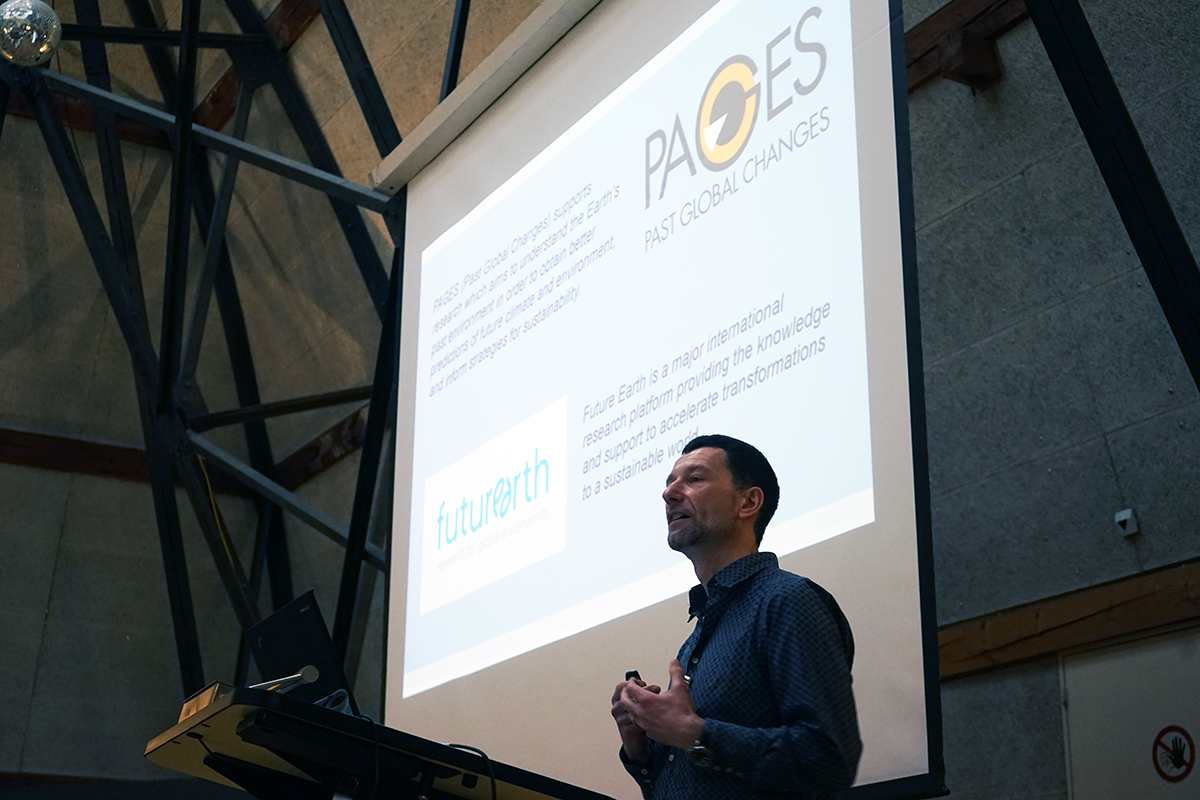
Fischer said bringing together participants who study a wide range of timescales was a brilliant way to start the IPCC contribution. "As a result of this meeting, we have a huge spread of information – from ice cores, to sea levels, to ocean processes, to ecosystems and more," he said. "We can gain a very comprehensive picture of the Earth system, but to synthesize and draw conclusions is a demanding task."
Using paleoclimate research helps to constrain predictions of a warmer future. Fischer explains: "There are certain impacts we will be able to predict – impacts that have direct implications for people living in different regions. For example, the risk of sea level to become six meters higher in the future, of drastic ecosystem changes or whether crops can't grow where they used to before. For example, in Switzerland the loss of glaciers will have a huge impact on water availability, thus agriculture and energy production. And this is likely to happen within the next 100 years."
Paper writing in real-time
As a way to keep things moving and to encourage immediate contributions, the paper which will become the IPCC contribution was started during the workshop, rather than after. This real-time writing is a novel approach to get the ball rolling.
Overall, Mix was happy with the workshop and the paper so far. "We know we have some work ahead of us, but that’s normal," he said. "It was a fabulous team, with an incredible amount of talent in the room, and amazing and engaged young scientists too. What’s different from this Integrative Activity to a normal working group was there were lots of people together who wouldn’t usually directly interact."
Unusual interactions provide inspiration
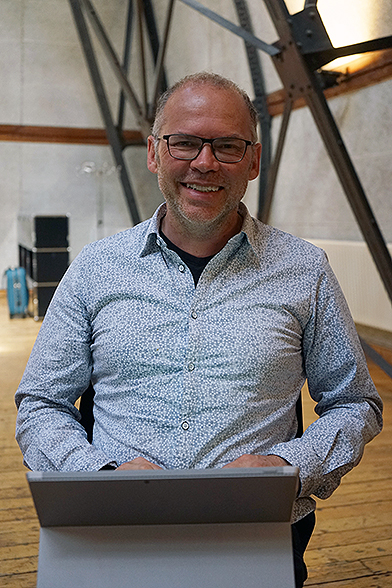
These unusual interactions were a highlight for many participants, including Willy Tinner, PAGES co-chair and Head of Paleoecology at the Institute of Plant Sciences, who said the workshop had "shaken" his knowledge. "Normally at conferences you meet with people within a related field, and when you specialize you tend to only move in that field," Tinner said. "On occasions like this, with all these brilliant people – who are producing some of the best work worldwide – it really pushes you forward; to think about and connect new things that you didn't dare think about before. They motivate you to rethink your knowledge."
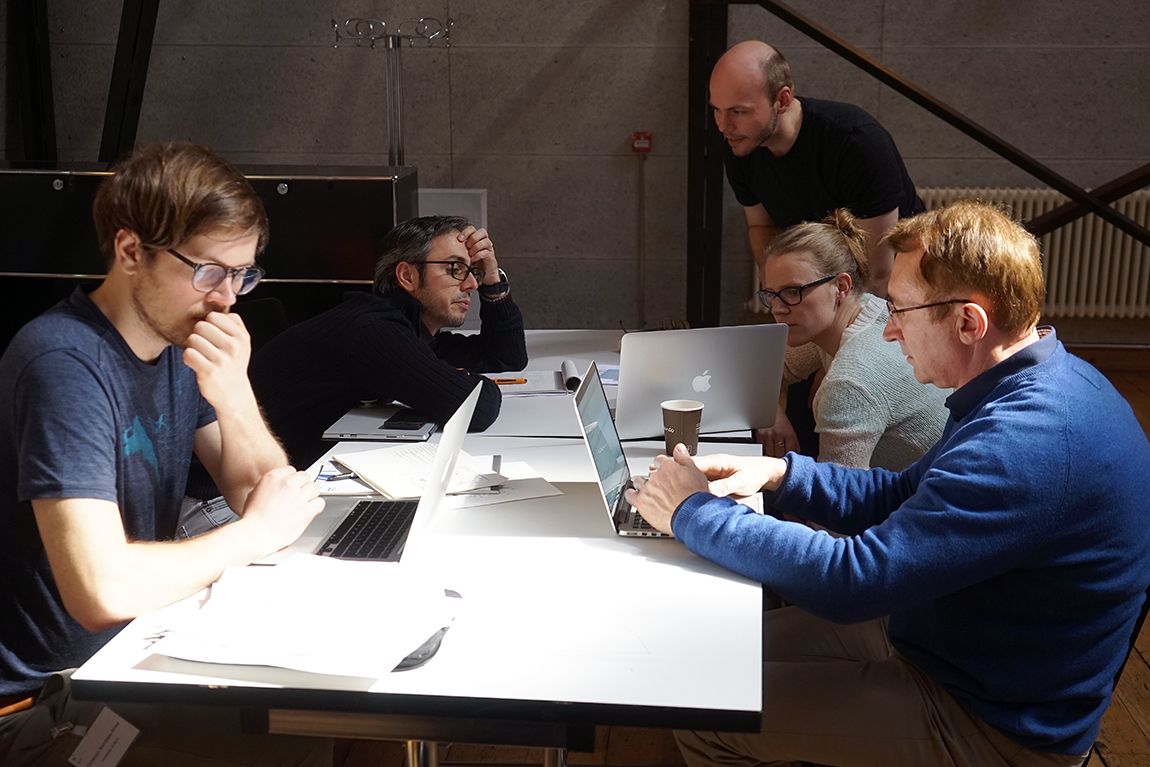
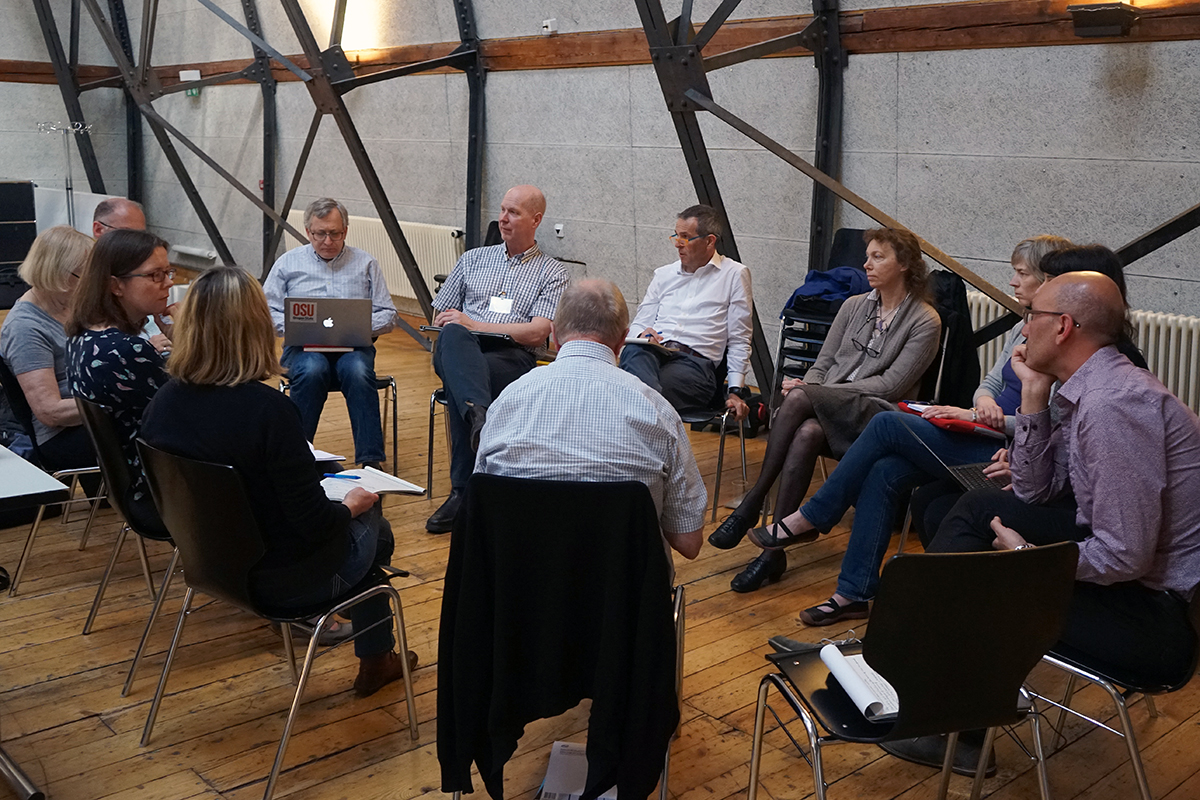
Qing Yan, associate professor at the Chinese Academy of Sciences who studies changes in ice sheets and tropical cyclones, was excited by the scope of the presentations. "My expertise is global climate modeling, but now I have been able to learn about paleo records, the Last Interglacial (130,000 years ago) and the Holocene (last 10,000 years)," he said.
Nerilie Abram, associate professor at the Australian National University whose work covers the last 2000 years, said gathering such a variety of research, but all with a common goal, was inspiring. "In the group, there is the feeling that we are developing something concrete – everything we have talked about is coming together, and we now have direction on how we can contribute," she said.
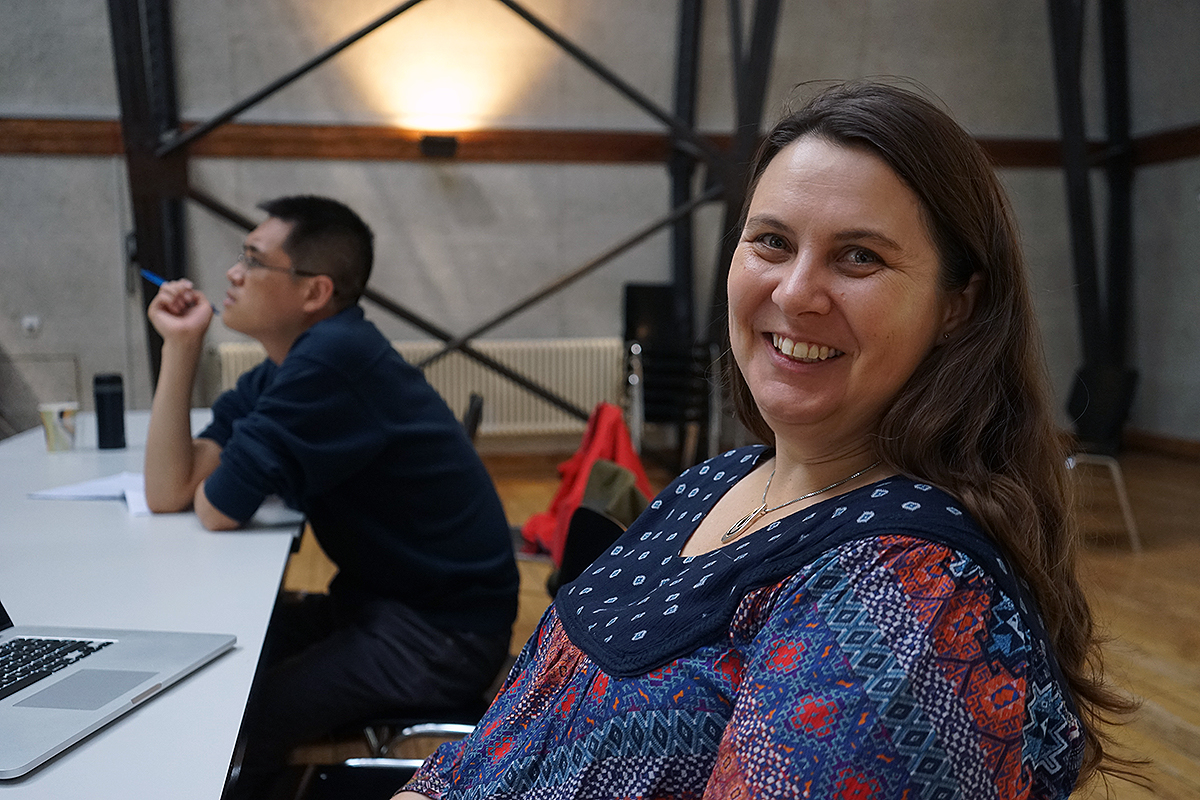
Including a broad paleoscientific contribution is important for the scope of the IPCC report overall. "We'll be writing for people who aren't paleoscientsts, for the IPCC report and beyond," Mix said. "We'll have a follow-up at PAGES' 5th Open Science Meeting (Zaragoza, Spain, 9-13 May), then try to submit the paper in June. If it’s to make the first round of IPCC qualifying documents, the deadline for submissions is in November, and we want to make that deadline."
PAST GLOBAL CHANGES (PAGES)
The PAGES project is a 25-year-strong international effort to coordinate and promote past global change research, to improve our understanding of past changes in the Earth system in order to improve projections of future climate and environment. The majority of PAGES outputs are written by paleoscientists who are active in more than 20 current PAGES working groups. PAGES is funded by the US National Science Foundation and the Swiss Academy of Sciences, and supported in kind by the University of Bern.
About the author
Angela Wade has been the Communications and Project Officer at PAGES since October 2015.